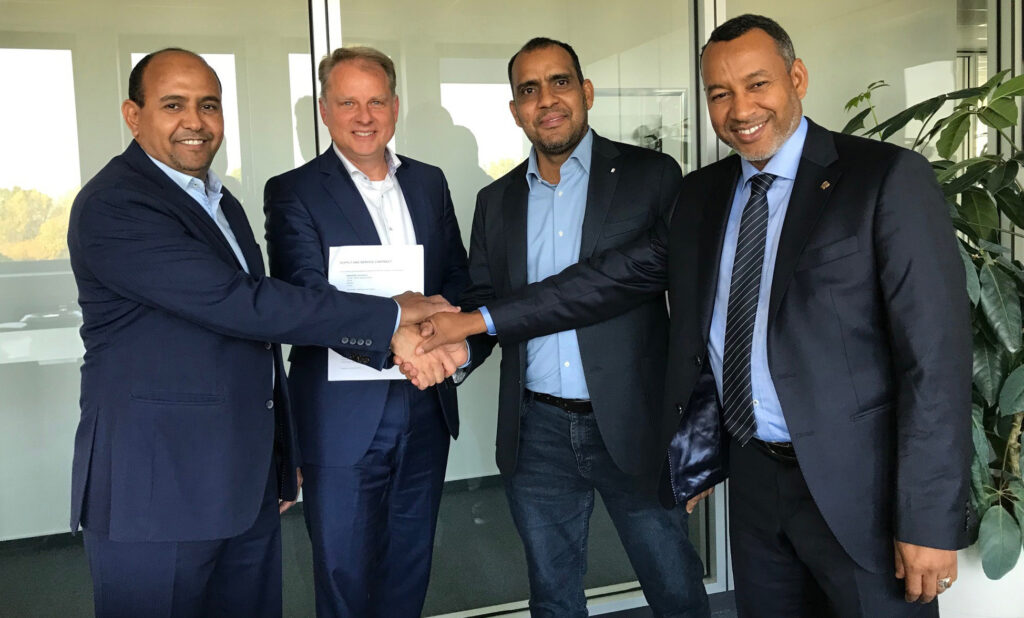Kawasaki Kisen Kaisha, Ltd. (“K” LINE) is pleased to announce the execution of five long-term Time Charter contracts through joint venture companies (Note 1) with QatarEnergy (Note 2). The joint venture companies have concurrently executed Shipbuilding contracts for 174,000m3 LNG carriers with Hudong-Zhonghua Shipbuilding (Group) Co., Ltd. “K” LINE has already concluded seven long-term Time Charter contracts with QatarEnergy in August this year (Note 3), making the total number of twelve vessels.
QatarEnergy is one of the world’s largest LNG producers and will allocate the newbuilding vessels to transport LNG around the world.
The newbuilding vessels will be equipped with X-DF 2.1 iCER (Note 4) which will contribute to reduction of GHG emissions and realize the ease of environmental impact by lower fuel consumption in operation.
Since the delivery of “Bishu Maru” in 1983 as the first Japanese LNG carrier, “K” Line has been establishing expertise on LNG transportation and developing its worldwide network for nearly 40 years. The new contracts have been executed as a successful result of supervision of vessel’s construction with abundant experience, the high-quality ship management, and the highest level of safe and commercially optimized operation.
“K” LINE and QatarEnergy have had long-term relationship through several existing projects. The new five Time Charter contracts, in addition to seven contracts executed in August 2022, will further strengthen the business relationship.
In our Medium-Term Management Plan published in May 2022(Note 5), “K” LINE has placed LNG business as one of the top priority areas in the future investment. “K” LINE will further expand long-term contracts and accommodate growing energy demands by responding to various customers’ needs.
(Note 1) It is sponsored by “K” Line together with Nippon Yusen Kabushiki Kaisha, China LNG Shipping (Holdings) Limited., and MISC Berhad through its wholly-owned subsidiary, Portovenere and Lerici (Labuan) Pte Ltd.
(Note 2) QatarEnergy is a state energy company of Qatar.
(Note 3) “K” LINE enters into Long-Term Time Charter with QatarEnergy for Seven Newbuilding LNG vessels (Released on August 10, 2022)
https://www.kline.co.jp/en/news/lng/lng186104931235583220/main/0/link/220810EN.pdf
(Note 4) X-DF 2.1 iCER is a low speed dual-fuel engine with gas at low pressure.
(Note 5) Medium-Term Management Plan (Released on May 9, 2022)
https://www.kline.co.jp/en/ir/management/strategy.html
Main Particulars of the Vessel
| Shipyard | Hudong-Zhonghua Shipbuilding (Group) Co., Ltd. |
| Delivery | From 2025 through 2026 |
| LOA | About 299m |
| Beam | 46.4m |
| Tank Capacity | 174,000m3 |
| Propulsion System | X-DF |
| Speed | 19.5knt |







